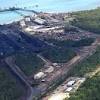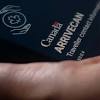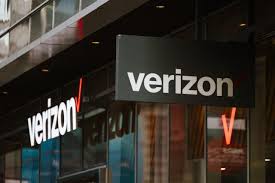Crew safe after Soyuz launch aborted 20 seconds before liftoff

Sign up for CNN’s Wonder Theory science newsletter. Explore the universe with news on fascinating discoveries, scientific advancements and more.
Three crew members are safe after their scheduled launch to the International Space Station from the Baikonur Cosmodrome in Kazakhstan was automatically aborted Thursday morning, according to a live NASA broadcast.
NASA astronaut Tracy C. Dyson, Roscosmos cosmonaut Oleg Novitskiy and spaceflight participant Marina Vasilevskaya of Belarus were expected to lift off aboard a Roscosmos Soyuz MS-25 spacecraft at 9:21 a.m. ET and arrive at the space station about three hours later.
But 20 seconds before the launch was to occur, an automatic abort was triggered after the second of two umbilicals, or service towers, up against the side of the Soyuz rocket, failed to initiate an engine sequence start.
“We do not know the reason why at this point,” according to a NASA broadcast of the launch.

The crew was informed by mission control shortly after the issue that they would not be launching to the space station. All fueling operations were ceased and safety commands were enacted to prevent any potential danger to the crew.
The crew’s next opportunity to launch is Saturday morning, but whether it goes forward depends on if engineers can determine the cause of the automatic abort and resolve it in time.
The abort was triggered “by ground support equipment due to low voltage reading in the Soyuz rocket electrical system,” according to an update shared by NASA. Saturday’s launch window is dependent on when the State Commission review for the Roscosmos launch is complete.
The abort did not impact the launch of a separate cargo resupply mission, which lifted off at 4:55 p.m. ET from Cape Canaveral in Florida and will dock at the space station Saturday morning. SpaceX’s Dragon spacecraft is carrying new science investigations, food, supplies and equipment on that flight.
Just before the broadcast of the attempted Soyuz launch ended, servicing towers were being raised next to the rocket and crew capsule to enable engineers to extract the crew and return them to their quarters.
When the launch is rescheduled, Dyson, Novitskiy and Vasilevskaya will travel join NASA astronauts Loral O’Hara, Matthew Dominick, Mike Barratt and Jeanette Epps, as well as Roscosmos cosmonauts Oleg Kononenko, Nikolai Chub and Alexander Grebenkin, who are all already aboard the space station.


 Canada
Canada Argentina
Argentina  Australia
Australia  Austria
Austria  Brazil
Brazil  Germany
Germany  Ireland
Ireland  Italy
Italy  Malaysia
Malaysia  Mexico
Mexico  New Zealand
New Zealand  Poland
Poland  South Africa
South Africa  United Kingdom
United Kingdom  United States
United States 
























